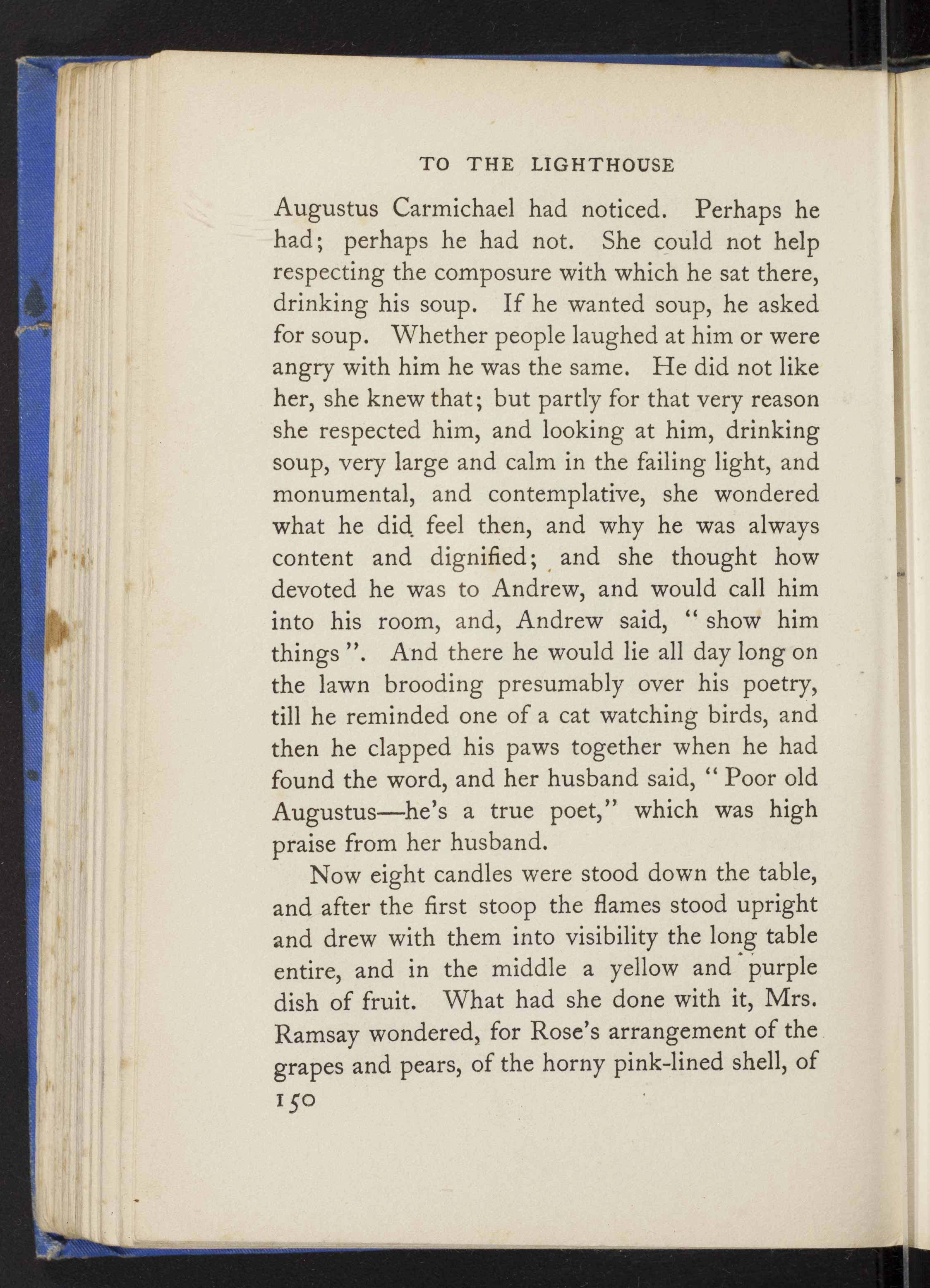
TO THE LIGHTHOUSEAugustus Carmichael had noticed. Perhaps hehad; perhaps he had not. She could not helprespecting the composure with which he sat there,drinking his soup. If he wanted soup, he askedfor soup. Whether people laughed at him or wereangry with him he was the same. He did not likeher, she knew that; but partly for that very reasonshe respected him, and looking at him, drinkingsoup, very large and calm in the failing light, andmonumental, and contemplative, she wonderedwhat he did feel then, and why he was alwayscontent and dignified; and she thought howdevoted he was to Andrew, and would call himinto his room, and, Andrew said, "show himthings". And there he would lie all day long onthe lawn brooding presumably over his poetry,till he reminded one of a cat watching birds, andthen he clapped his paws together when he hadfound the word, and her husband said, "Poor oldAugustus—he’s a true poet," which was highpraise from her husband.Now eight candles were stood down the table,and after the first stoop the flames stood uprightand drew with them into visibility the long tableentire, and in the middle a yellow and purpledish of fruit. What had she done with it, Mrs.Ramsay wondered, for Rose’s arrangement of thegrapes and pears, of the horny pink-lined shell, of150









